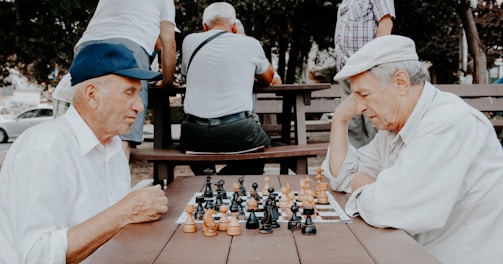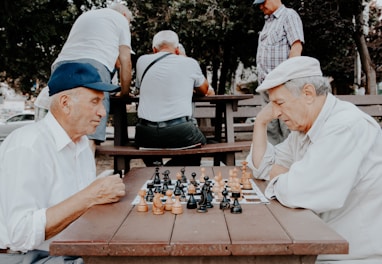Understanding Senior Living Communities
Independent Living Community
Independent Living (Retirement Community) is for seniors who are able to live on their own while enjoying the conveniences of living within a community. These communities provides services and amenities such as property maintenance, housekeeping, social activities, dining, transportation and security. Many communities have gyms, beauty salons, lounges and more.
Independent Living Communities promote an active & healthy retirement!
Assisted Living Community
Assisted Living (Personal Care) is an option that combines housing, support services and health care as needed. Residents are encouraged to do everything they want to do, to the best of their abilities. When assistance is required, well-trained & caring staff are there to provide support. Activities of daily living, such as bathing and dressing, as well as transportation and reminders to take medication are just a few of the services provided. Most facilities are designed with safety and fall prevention in mind. They also offer activities and amenities to keep your loved one active & socializing.




Memory Care
Memory Care (Dementia Care) specifically supports the physical and cognitive needs of those living with Alzheimer’s and dementia. Memory care communities offer secured areas that residents can not leave unless under supervision. Most MC communities are designed with visual cues and themes to stimulate memory and help residents find their way around. They offer programs & activities that focus on each resident’s personal history and help stir memories, build connections and retain skills.
Skilled Nursing Home
Skilled Nursing Care (Nursing Home) is for those who need ongoing long-term nursing care or for those who need short-term rehabilitation while recovering from surgery or an illness. Skilled facilities provide medical services and 24-hour supervision by licensed nursing personnel and certified nursing assistants. Skilled long term care should only be considered when all other options have been exhausted.




Respite Care
Respite care is a short-term stay at a senior living community. Respite care stays are available for a variety of care levels and purposes and range from 1 week to 6 months. Respite stays are approximately half the cost of hospital or rehab stays. Often a respite stay is beneficial after a release from the hospital or rehabilitation center to insure a loved one is well enough to return home safely.




Residential Care Facility for the Elderly (RCFE)
It is a type of residential housing option that provides care and assistance to elderly individuals who may require help with daily activities but do not require extensive medical care. RCFEs are designed to provide a safe and supportive environment for seniors while promoting their independence and quality of life.
In an RCFE, residents typically have their own private or shared rooms within a larger facility. The facility offers various services such as meals, housekeeping, medication management, transportation, and assistance with activities of daily living (ADLs) like bathing, dressing, and grooming. Trained staff members are available round the clock to provide supervision, support, and assistance to residents as needed.
It is important to note that RCFEs are not nursing homes or skilled nursing facilities. While they do provide care and assistance, they generally do not offer the same level of medical care provided in a nursing home setting. However, some RCFEs may have arrangements with home health agencies or other healthcare providers to offer additional medical services to residents if needed.
Overall, RCFEs play a vital role in providing a supportive living environment for elderly individuals who require some level of assistance but do not need continuous medical care. They aim to promote independence, socialization, and a sense of community while ensuring the safety and well-being of their residents.
